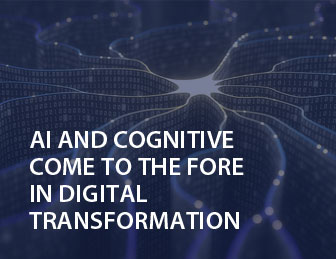It is not an unknown fact in the 21st century that AI has touched almost every industry, and businesses engaged in the retail sector are no different. AI/ML algorithms have significantly impacted this industry if we specifically talk of inventory management, sales optimization, and customer engagement. This write-up will dig into the intricacies of how AI along with relevant technologies have proven to be game changers for the retail industry.
AI-Powered Custom Shopping Experiences
In the retail industry, AI is extensively used by professionals to study large sets of customer data and shopping behavior, facilitating customized product recommendations, promotions, and pricing. This not only enhances the shopping experience but also improves customer loyalty and sales to a large extent.
Optimized Inventory Management Using AI/ML
AI algorithms have also impacted inventory processes in the retail sector. They are used to forecast stock requirements based on different factors like past sales data, seasonal trends, and upcoming promotions. This assists in augmenting inventory levels, mitigating stockouts or overstock situations, and optimizing supply chain efficiency.
Automating Customer Service For Better Outcomes
The retail sector has also benefitted from the good number of AI-powered chatbots and virtual assistants that provide continuous 24/7 customer service. This includes multiple activities, from managing inquiries, and consumer complaints, and providing product and service-related information. Hence, adopting AI-enabled chatbots accelerates customer satisfaction while lessening the workload on human staff.
Galvanize Customers Visual Search And Recognition
In today’s business dynamics, consumers can use mobile applications to look out for products by clicking pictures, monumentally improving the shopping experience. The workers in this industry also use image recognition for inventory tracking and to prevent any kind of theft.
High-Powered Price Optimization
We have moved away from the era of static price tags to dynamic pricing algorithms. Interpretation of information, such as competitor pricing, demand, and inventory levels to adjust prices in real-time, is done by these algorithms to maximize profit margins and competitiveness.
ML Algorithms For Smarter Decision-Making In The Retail Industry
Being a subset of AI, machine learning models cannot be kept away from the picture. The ML classification algorithms predict future demand, thereby helping retailers make accurate business decisions pertaining to stock replenishment, marketing and advertising strategies, and product development.
AI Facilitates Fraud Detection And Prevention
Every retailer in the market faces the threat of ‘fraud’. To combat any activity of fraudulence, retailers can use AI systems that can detect and categorize cases of fraud and security threats. These systems make this achievable by studying transaction patterns and consumer behavior, ultimately resulting in reduced losses and increased transaction security.
AI Optimizes In-Store Consumer Behavior Analytics
In this century, retailers no longer have to stand physically inside the stores and make personal observations about consumer behavior. Retail store owners harness the power of AI to scrutinize foot traffic and the behavior of walk-in consumers. The data they gather by analyzing such activities can be further used to make better decisions about store layout optimization, product placements, and targeted promotion.
AI-Based Supply Chains: Streamline Operations And Reduce Costs
If you believe AI just improves the shopping experience for retailers and consumers, you need to think twice. This is because AI isn’t just about that – it also includes optimizing the backend of the core retail operations. By interpreting vast amounts of data, which includes order history, warehouse capacity, and real-time traffic, AI models can ameliorate inventory distribution, deliveries, and machinery.
AI’s Ability To Achieve Sustainability And Waste Reduction
Another aspect of AI when it comes to the retail industry that should never be overlooked is its ability to make the environment more sustainable. AI can predict future demands, and because of the accuracy it brings, the retail industry can lower overproduction, waste, and negative impact.
A Spectrum Of Tech Solutions: Retail And AI
While AI is majorly responsible for revolutionizing the retail sector, it isn’t the sole driver in the journey. A variety of technologies have a role to play in this regard, and this includes Salesforce, Microsoft, and open-source technologies, like Apache Mahout. By providing greater flexibility to enable enhanced personalization, these tools not only bring transparency to the table but also expedite the retailers to stand out in a competitive market.
Flexsin’s Comprehensive Set Of AI-Enabled Solutions For The Retail Industry
As a legacy technology company, Flexsin combines the power of AI with high-tech tools and software products to deliver credible solutions to the retail and e-commerce industry. The organization has the required number of experienced professionals, who build robust digital applications to help the retail industry streamline daily operations.


 Anurag Dutt
Anurag Dutt


